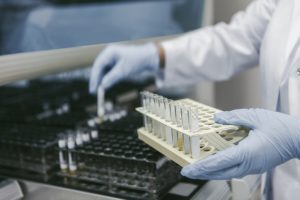Contract research organization (CRO) PPD will expand its biologics capabilities in Athlone, Ireland to include cell and gene therapy analytical testing.
The 41,000 square foot Athlone facility will have a further 6,000 square feet of lab space added to it to feed the demand for biologics testing and to mirror expansions being made at PPD’s facility across the pond in Middleton, Wisconsin.
“The Athlone facility enables us to partner closely with a wide variety of both European and global clients to deliver strong scientific and technical expertise across a broad range of highly customized services,” Jon Denissen, senior vice president at PPD Laboratories’ bioanalytical and GMP labs, told this publication.

Image: iStock/pattonmania
“This expansion is part of our ongoing efforts to meet the growing needs of our biopharmaceutical clients. Our goal is to offer the same extensive biologic, gene and cell therapy portfolio to clients in both Europe and North America, giving them additional opportunity to bring their valued assets to our scientific professionals at either GMP location.”
The site will offer biological testing across all modalities. According to Denissen, there are many commonalities between the array of analytical tests performed for various biologic products.
“However, there are also specific tests that are required for specific types of biologic therapies, such as replication competence and DNA sequencing for viral vector-based gene therapy products. PPD Laboratories offers the scientific expertise and capabilities to support both conventional (e.g. monoclonal antibodies) and cell or gene-based biologics.”
Financial details of the expansion have not been divulged, but PPD says it plans to add about 20 positions at the site
Outsourcing
The expansion has further been driven by the abandonment of traditionally in-house testing.
“As the volume of biologic products has increased, the analytical testing associated with their clinical development and commercial release has become more standardized,” said Denissen.
“Therefore, many pharmaceutical companies have made the strategic shift away from in-house testing and instead partner with top-tier laboratories, such as PPD Laboratories, for the analytical testing of their biologics.
“By working with PPD Laboratories, pharma companies access the capacity, array of capabilities, scientific expertise, quality and regulatory compliance they need, when they need it, without the high cost associated with maintaining a large scale GMP-compliant biologics testing capability in-house.”
